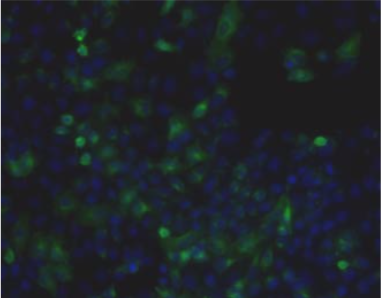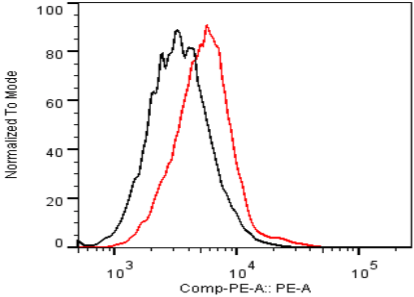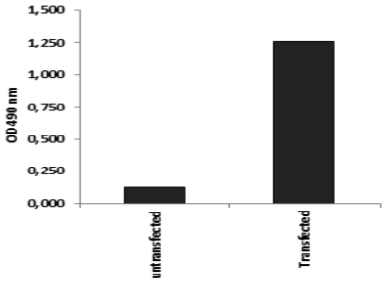
Anti Inter-Alpha-Trypsin Inhibitor Heavy Chain H4 (ITIH4) pAb (Sprague Dawley Rat, Antiserum)
CAC-ICA-TG2-RTP2
ApplicationsFlow Cytometry, ELISA, ImmunoHistoChemistry
Product group Antibodies
Overview
- SupplierCosmo Bio USA
- Product NameAnti Inter-Alpha-Trypsin Inhibitor Heavy Chain H4 (ITIH4) pAb (Sprague Dawley Rat, Antiserum)
- Delivery Days Customer16
- ApplicationsFlow Cytometry, ELISA, ImmunoHistoChemistry
- CertificationResearch Use Only
- ClonalityPolyclonal
- HostRat
- Scientific DescriptionNeurodegenerative diseases such as Alzheimers disease and Parkinsons disease have been increasing rapidly and have become a serious social problem. In recent years, new causative genes have been discovered for amyotrophic lateral sclerosis (ALS) and other intractable neurological diseases opening new avenues for research on pathogenesis. It has been suggested that aggregation and accumulation of specific proteins cause neurotoxicity and the formation of lesions, but the onset and progression mechanisms are still unclear. Neuropathological diagnostic and experimental model biomarkers are needed for drug construction, drug discovery, and therapeutic development. ITIH4 is secreted into the blood and is cleaved by plasma kallikrein into two protein fragments. The expression of this protein is localized to the liver, and peptide fragments of ITIH4 are detected in the serum of patients with liver cancer and cirrhosis. Thus, ITIH4 is a new biomarker for liver disease. Furthermore, experiments using model mice with amyotrophic lateral sclerosis (ALS) have shown that ITIH4 elevation promotes progression of pathological conditions. On the other hand, ITIH4 has many sites that undergo post-translational modification such as glycosylation, and its application to cell staining and flow cytometry by antibodies using peptides and recombinant proteins as antigens has been considered extremely difficult. These problems have been solved by the nanotaxi method, and we present two rat polyclonal antibodies suitable for detection of human ITIH4.
- Storage Instruction-20°C
- UNSPSC41116161


